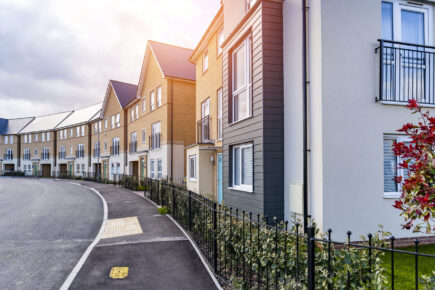Residential property
Since the pandemic began, people’s priorities for their home, whether buying or renovating, have been changing.
A home office space: With the number of people working from home at an all-time high, many homeowners want an additional room or area where they can set up a dedicated office space.
Outdoor space/garden: Bigger gardens are also a priority since people are spending more time at home. Property Investor Today has reported a 150% increase in the number of people searching for properties with outdoor space, compared to the same time in 2019.
Elimination of commutes: Another trend revolves around the major lifestyle changes people are experiencing, particularly around the reduction or potential elimination of the daily commute to work. People are looking beyond commuter hotspots in search of properties where you can get more for your money.
Commercial property – Planning overhaul to revitalise town centres
Current town centre use classes relating to shops, restaurants and cafes, offices, financial and professional services, learning and community uses, have been incorporated into three new use classes as part of an overhaul of the planning system. The government aims to deliver flexibility for businesses and developers at a time when there is a need to revitalise town centres.
What do I need to know?
Class E: The most fundamental change is the new ‘broad’ Class E, ‘Commercial, Business and Service’. This will incorporate retail uses, cafes and restaurants, financial and professional services; gyms; medical services; children’s nurseries and offices, research and development facilities and some industrial uses.The purpose of the reclassification is to increase flexibility for planning permission, allowing business owners to switch more fluidly from one use to another. This is the function of the new diverse Class E, which has absorbed many uses which were previously separate and would have required planning permission to change from one to another. A welcome side effect of this added freedom for operators could be an increase in value for land and businesses falling into Use Class E.
F1 and F2 classes: The new F1 class, which is ‘learning and non-residential institutions’, encompasses former Class D1 uses (non-residential education uses, art galleries, museums, libraries, public halls, public worship or religious uses and law courts) apart from medical and health services, which have now been allocated to the new Class E. The new class of 'Local Community' uses (Class F2), will ensure vital community facilities are protected through the planning system. Changes of use within this class do not need planning permission.
Sui generis: For businesses, which now fall into ‘sui generis’, some flexibility, and therefore value, may be lost as they will be subject to more planning controls. Generally planning permission is required to change from one ‘sui generis’ use to another, which may have a negative effect on the drinking establishments, hot food takeaways and gastropubs which have been moved into this category.
If you’d like to speak to a lawyer about any of the matters raised, or any other development issue, please contact the commercial property team on 01753 889995 or email enquiries@bpcollins.co.uk.
















